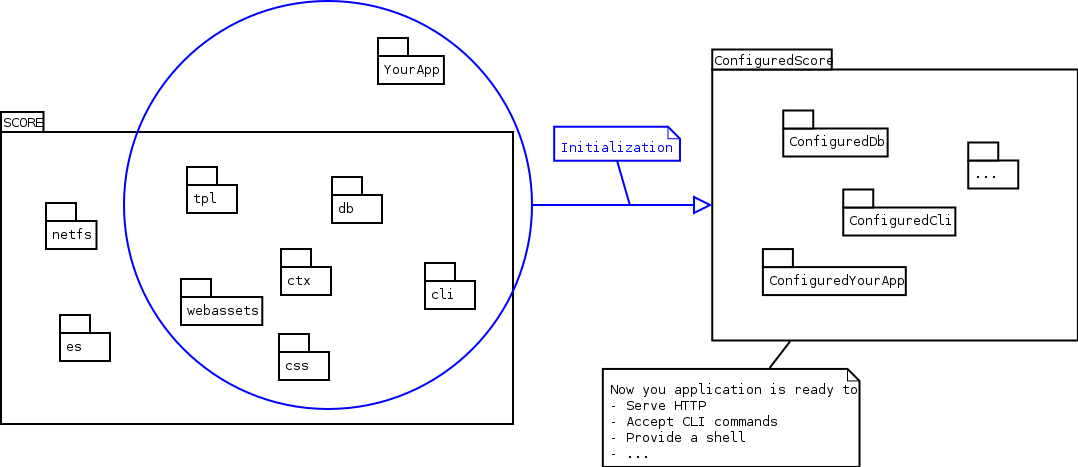Initialization¶
An application built on SCORE starts by initializing its modules, setting up a configured environment in which your operations are executed:

The SCORE Initialization process in a nutshell
The application itself must adhere to the same initialization rules as all SCORE libraries: It must expose a function called init with the following characteristics:
The init function must accept a python dict as its first argument, containing your module’s configuration—the so-called confdict. This confdict contains strings as values, and the body of the init function must make use of the various parsing functions in
score.initto convert the strings to the proper types:from score.init import parse_list def init(confdict): fruits = parse_list(confdict['fruits']) ...
The other parameters to this function are your module’s dependencies, i.e. names of other modules that your module relies on. A module for transporting coconuts (depending on the swallow module, optionally making use of an existing knights module) might look like the following:
from score.init import parse_time_interval def init(confdict, swallow, knights=None): coconut_weight = int(confdict.get('weight', 10)) if swallow.max_payload_weight < coconut_weight: raise InitializationError( 'coconut', 'Swallow cannot transport coconut') timeout = parse_time_interval(confdict.get('assume_dead', '1d')) return ConfiguredCoconutModule(coconut_weight, timeout)
Finally, your
initfunction must return an instance ofscore.init.ConfiguredModulecontaining a configured instance of your module. This object will be used to represent your module throughout the rest of the application:from score.init import ConfiguredModule class ConfiguredCoconutModule(ConfiguredModule): def __init__(self, weight, timeout): import coconut super().__init__(coconut) self.weight = weight self.timeout = timeout def estimate_delivery_time(self, swallow, from, to): # TODO: do some real calculations here return 42
That’s all there is to know! Now let’s create an example application using this information: A blog for the ministry of silly walks.

